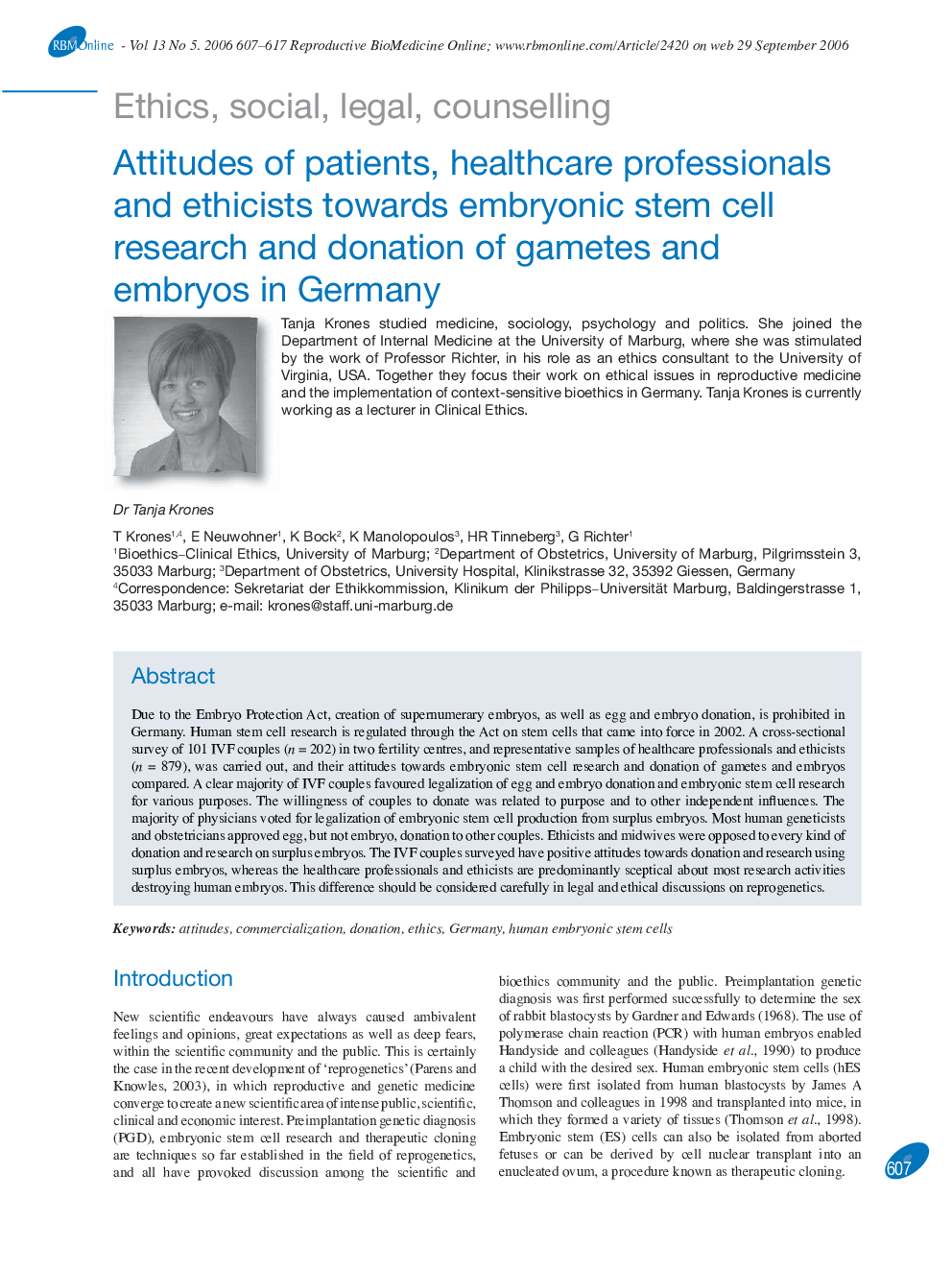| Article ID | Journal | Published Year | Pages | File Type |
|---|---|---|---|---|
| 3973533 | Reproductive BioMedicine Online | 2006 | 11 Pages |
Due to the Embryo Protection Act, creation of supernumerary embryos, as well as egg and embryo donation, is prohibited in Germany. Human stem cell research is regulated through the Act on stem cells that came into force in 2002. A cross-sectional survey of 101 IVF couples (n = 202) in two fertility centres, and representative samples of healthcare professionals and ethicists (n = 879), was carried out, and their attitudes towards embryonic stem cell research and donation of gametes and embryos compared. A clear majority of IVF couples favoured legalization of egg and embryo donation and embryonic stem cell research for various purposes. The willingness of couples to donate was related to purpose and to other independent influences. The majority of physicians voted for legalization of embryonic stem cell production from surplus embryos. Most human geneticists and obstetricians approved egg, but not embryo, donation to other couples. Ethicists and midwives were opposed to every kind of donation and research on surplus embryos. The IVF couples surveyed have positive attitudes towards donation and research using surplus embryos, whereas the healthcare professionals and ethicists are predominantly sceptical about most research activities destroying human embryos. This difference should be considered carefully in legal and ethical discussions on reprogenetics.
